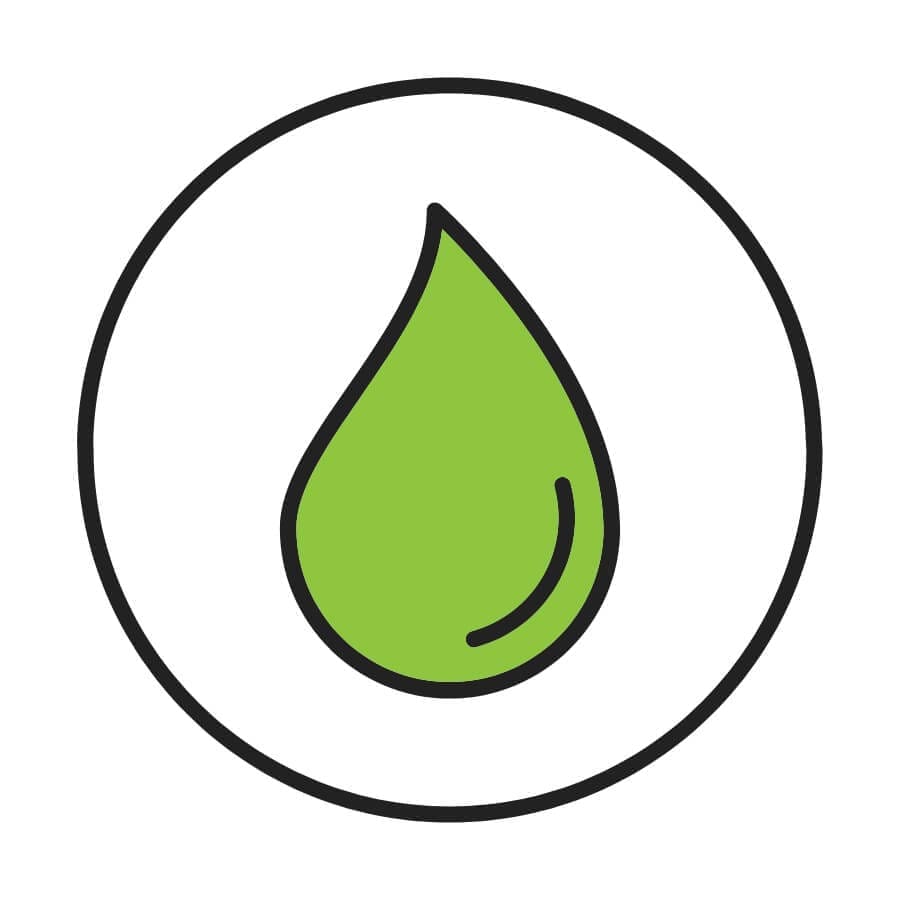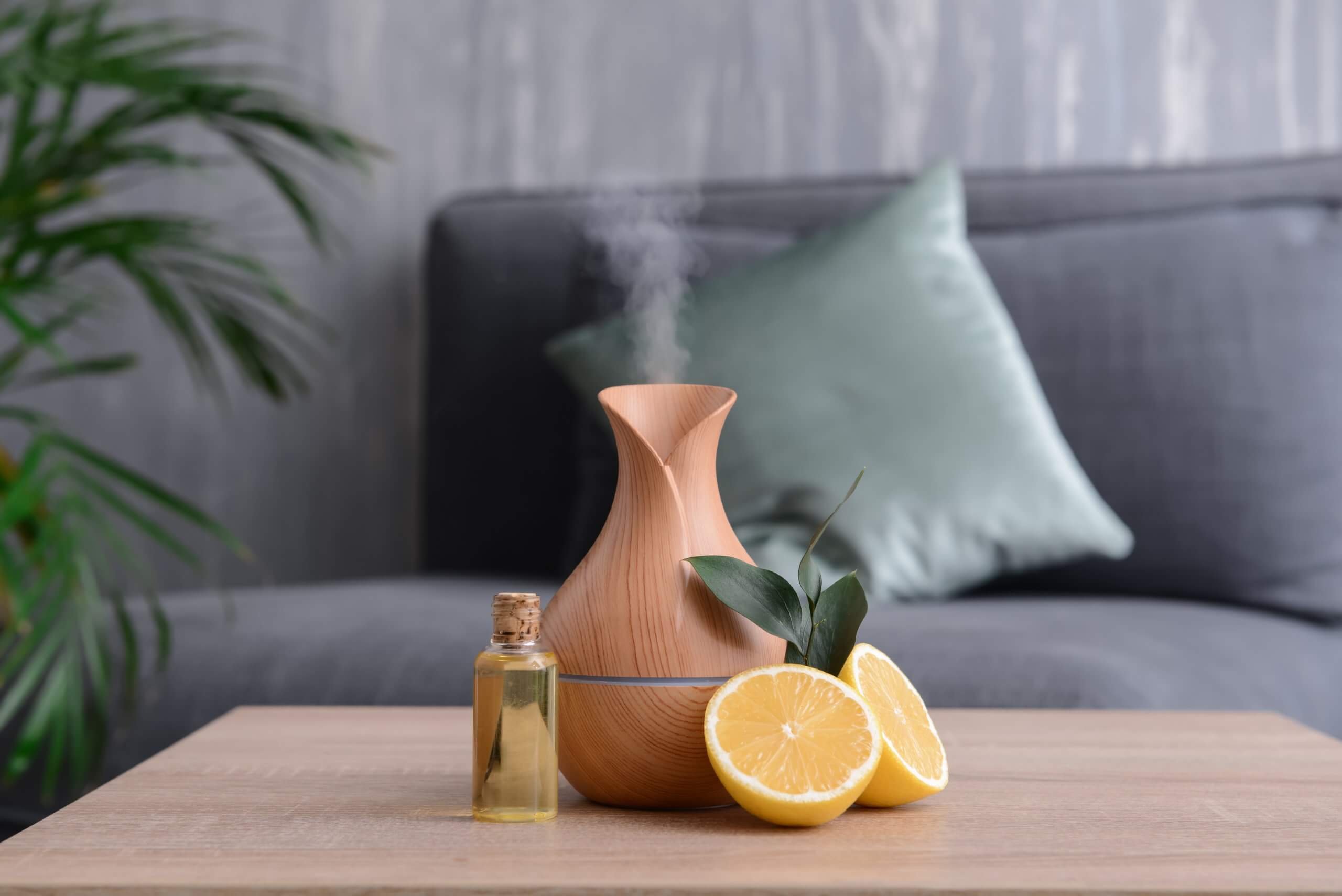Essential oils rose to popularity due to their enticing fragrance and versatility. With a myriad of scents including lavender, lemongrass, grapefruit and peppermint, essential oils are popular among all age groups. Despite their popularity, more and more people using essential oils as air fresheners are questioning their safety.
Perhaps the most important question is whether or not essential oils affect indoor air quality. And is there an unfavorable side to using essential oils for air freshening purposes?
What Are Essential Oils?
An essential oil comprises concentrated hydrophobic liquid extracted from plants. When extracted, the oil retains the natural scent or “essence” of the plant. Processes used to extract essential oils include distillation, expression, cold pressing and solvent extraction. Essential oils are found in cosmetics, soaps, incense and perfumes. Essential oils alone are also often used for aromatherapy. Considered an alternative form of medicine with both physical and mental health benefits, aromatherapy includes both skin and smell absorption.
Can Essential Oils Improve Indoor Air Quality?
Unfortunately, essential oils do not improve indoor air quality.
In fact, they actually worsen indoor air quality when used in diffusers.
Using aroma oils on your skin, in a bath or shower, simply smelling the oil or using dry evaporation methods are generally fine for indoor air quality. Using essential oils as air fresheners or for aromatherapy in diffusers and portable room humidifiers will worsen your home’s IAQ.
Allergy, Asthma & Clinical Immunology found that using an essential oil diffuser can worsen asthma symptoms in children. The study found that children who were exposed to essential oil diffusers were more likely to experience wheezing, coughing, and shortness of breath.
Indoor Air Pollution From Essential Oils
According to a 2018 study, researchers found that essential oils emit volatile organic compounds (VOCs) when diffused. The authors examined 12 regular essential oils and 12 “natural” essential oils. The 24 essential oils emitted 595 VOCs, representing 188 individual volatile organic compounds. The lengthy list included hazardous VOCs such as acetone and ethanol.
A recent study published in the journal Environmental Science & Technology found that using an essential oil diffuser can increase the levels of VOCs in indoor air by up to 100 times.
The study also found that the levels of VOCs emitted from essential oil diffusers can be higher than the levels of VOCs emitted from other common household products, such as air fresheners and cleaning products.
As a reminder, according to the Environmental Protection Agency, exposure to VOCs may result in the following health effects:
- Eye, nose and throat irritation
- Headaches, loss of coordination and nausea
- Damage to the liver, kidney and central nervous systems
With that said, it’s important to use essential oils properly, regardless of the method. Improper use and high concentrations can lead to several adverse health effects.
Are Essential Oil Diffusers Also Humidifiers?
Essential oil diffusers produce soothing scents meant to create a tranquil atmosphere. There are four main types of essential oil diffusers: ultrasonic diffusers, nebulizing diffusers, heat diffusers and evaporative diffusers.
Ultrasonic Diffusers produce a vapor that combines water and essential oils. Without the essential oils, ultrasonic diffusers can double as portable humidifiers.
Nebulizing Diffusers produce fine particles derived from essential oils with the help of an atomizer.
Heat Diffusers evaporate essential oils into the air with … you guessed it, heat!
Evaporative Diffusers evaporate essential oils into the air with the help of an absorbent pad.
An ultrasonic diffuser is the only diffuser that vaguely mimics the function of a humidifier. Humidifiers produce moisture to prevent the air from becoming too dry. Similar to humidifiers, ultrasonic diffusers require water to function. An ultrasonic diffuser without essential oils produces pure water vapor, adding moisture to the air, similar to humidifiers.
While oil diffusers expertly produce invigorating scents that liven a room or help with aromatherapy purposes, they are not equipped to humidify a home. If you’re looking for a device to assist with indoor humidity control, consider a whole-home humidification system instead.
 Whole-Home Humidifiers: If you’d like to learn more about whole-home humidification solutions, check out our guide comparing the two systems →
Whole-Home Humidifiers: If you’d like to learn more about whole-home humidification solutions, check out our guide comparing the two systems →There are two types of whole-home humidifiers: evaporative humidifiers and steam humidifiers. Evaporative humidifiers blow warm air over a humidifier pad drenched in water to create water vapor. Conversely, steam humidifiers convert water held in an internal reservoir into steam.
Beware of Essential Oils as Air Fresheners
While it may appear as though essential oils and diffusers improve indoor air quality with their aromatherapy properties, this is not the case.
Using essential oils as air fresheners actually has the opposite effect. Similarly, using essential oil diffusers for humidity control is unhelpful as they are hardly equipped to humidify an entire room, no matter how small, let alone your entire home.
It’s always important to research products before purchasing so you know their potential impact on indoor air quality and how it relates to your health.




